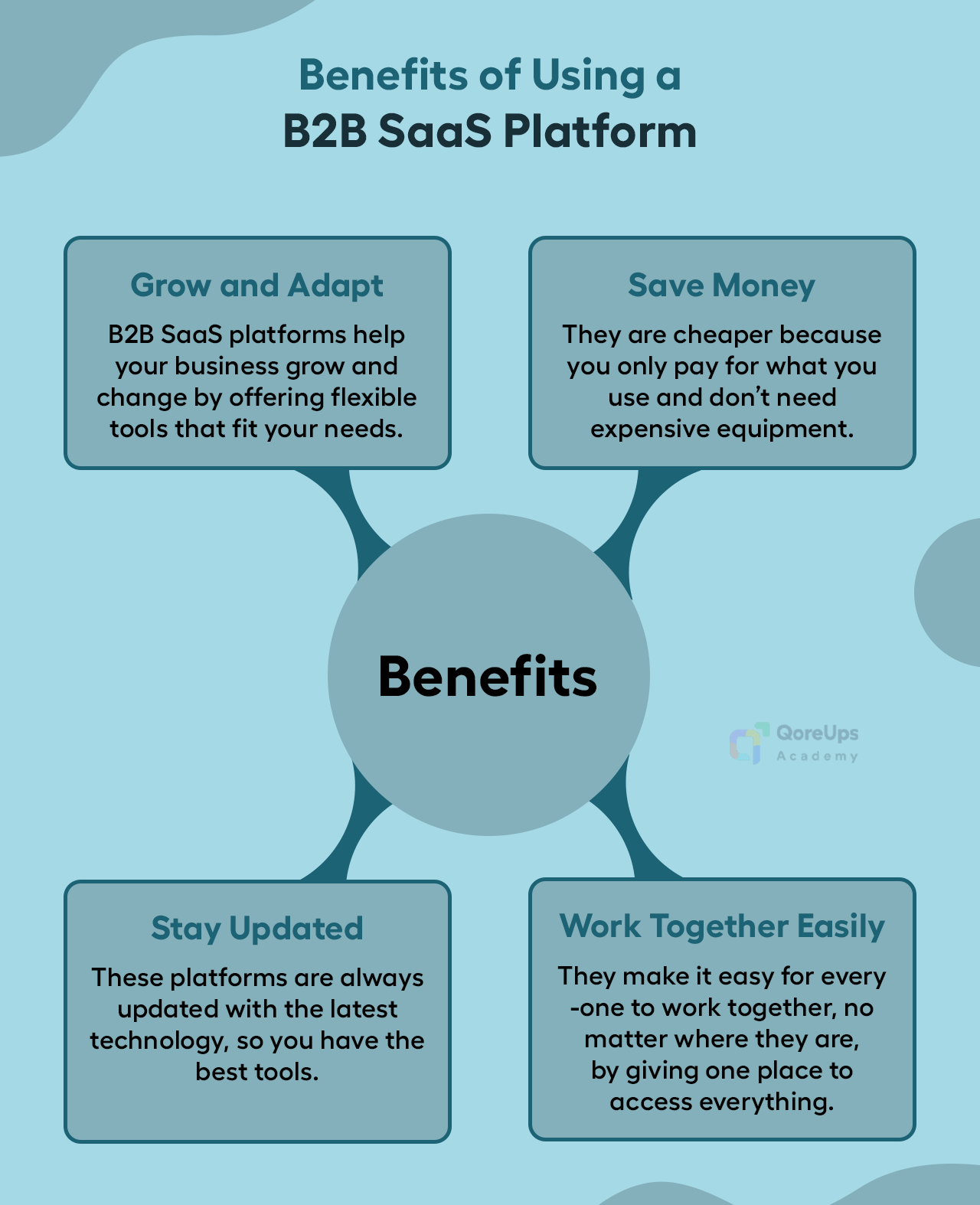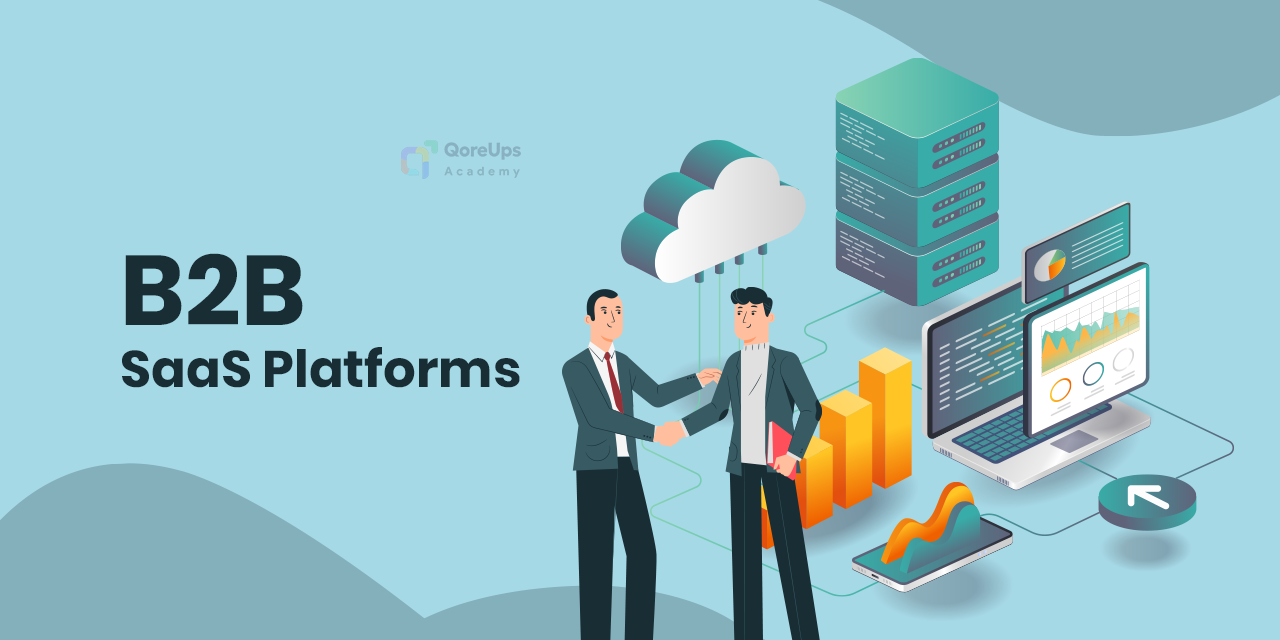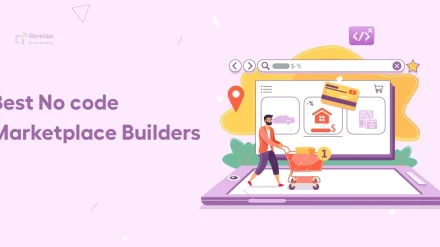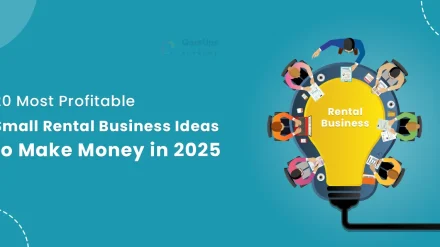Over the past two decades, the B2B SaaS industry witnessed substantial growth over the new player.
Recent statistics show that at present there are more than 30,000 B2B SaaS companies that cater to millions of customers.
The growth of B2B SaaS Company is fueled by the evolution of customer expectations.
So, let’s start with the basics.
What Is B2B SaaS?
SaaS, or Software as a Service, provides users with access to software over the Internet instead of requiring them to download and install the software on their own devices.
As a cloud-based service, SaaS includes prebuilt infrastructure and hardware, eliminating the need for on-premise software installation.
All you need is an internet connection and boom, you can access it virtually anywhere.
As you know B2B (Business to Business) is a type of business exchange that happens between businesses.
B2B SaaS refers to cloud-based software that businesses can access from anywhere with an internet connection.
Key characteristics of SaaS platforms include scalability, subscription-based pricing, cloud-based infrastructure, regular updates, and robust security features.
- Instead of purchasing software licenses, businesses can utilize flexible pricing options like subscriptions and metered services.
- Data and services can be accessed from various devices and locations, enhancing flexibility and supporting remote work.
- B2B SaaS providers regularly update and maintain their software, ensuring businesses have access to the latest features.
- B2B SaaS solutions are easy to scale and can be adapted to meet the unique needs of a business.
- Providers host multiple clients (tenants) on the same infrastructure, creating a shared and cost-efficient environment.
- Providers invest in robust security measures to protect data and frequently adhere to industry-wide standards.
Understanding B2B SaaS Companies
B2B SaaS company provides cloud-based software solutions tailored specifically to meet the needs of businesses.
Unlike traditional software models that require hefty upfront investments and extensive IT infrastructure, the B2B SaaS platform offers subscription-based services accessible via the Internet.
This model not only minimizes upfront costs but also ensures continuous updates and seamless scalability, making it an attractive choice for businesses of all sizes.
What are the Benefits of Using a B2B SaaS Platform?
In recent years, the demand for B2B SaaS platforms has skyrocketed, driven by several key factors:
Scalability and Flexibility
B2B SaaS platforms empower businesses to scale their operations efficiently without the constraints of traditional software.
Whether it’s managing customer relationships, streamlining internal processes, or optimizing supply chain logistics, these platforms offer customizable solutions tailored to the unique requirements of each enterprise.
Cost-Efficiency
By eliminating the need for extensive infrastructure and maintenance costs, B2B SaaS platforms offer a cost-effective alternative to traditional software solutions.
Businesses can subscribe to the services they need, paying only for what they use, thereby optimizing their IT budgets and maximizing ROI.
Continuous Innovation
In today’s fast-paced business environment, innovation is crucial for staying ahead of the competition.
B2B SaaS companies are at the forefront of innovation, constantly refining and enhancing their platforms to incorporate the latest technologies and industry best practices.
This ensures that businesses always have access to state-of-the-art solutions that drive growth and success.
Accessibility and Collaboration
With B2B SaaS platforms, geographic barriers and disparate systems are no longer obstacles to collaboration.
These platforms provide centralized access to data and applications, enabling seamless communication and collaboration among teams, partners, and stakeholders across the globe.
Whether it’s project management, file sharing, or real-time analytics, B2B SaaS platforms facilitate smooth collaboration and decision-making processes.
These are the top SaaS benefits.

The Potential of B2B SaaS Platforms
For businesses looking to harness the full potential of B2B SaaS platforms, here are some key strategies to consider:
Identify Business Needs
Conduct a thorough assessment of your organization’s goals, challenges, and operational requirements.
Identify areas where B2B SaaS solutions can drive the most significant impact, whether it’s improving efficiency, enhancing customer experience, or driving innovation.
Evaluate Providers
With a plethora of B2B SaaS providers in the market, choosing the right one can be daunting.
Evaluate potential providers based on factors such as reliability, security, scalability, and customer support.
Look for providers with a proven track record of delivering quality solutions and excellent service.
Customization and Integration
While off-the-shelf solutions offer convenience, customizing and integrating B2B SaaS platforms to align with your specific business processes can unlock even greater value.
Work closely with your chosen provider to tailor the platform to your unique requirements and integrate it seamlessly with existing systems and workflows.
Training and Adoption
Successful implementation of a B2B SaaS platform requires more than just technological prowess; it requires organizational buy-in and user adoption.
Invest in comprehensive training programs to ensure that your teams are proficient in using the platform and fully leverage its capabilities to drive business outcomes.
Real-World Applications of B2B SaaS Platforms
Customer Relationship Management (CRM)
CRM platforms, such as Salesforce, are quintessential B2B SaaS solutions.
They help businesses manage interactions with current and potential customers, streamline sales processes, and improve customer satisfaction.
These platforms provide valuable insights through data analytics, enabling more informed decision-making.
Project Management
Tools like Asana and Trello exemplify how B2B SaaS platforms can enhance project management.
They offer features like task assignment, progress tracking, and collaboration tools, making it easier for teams to stay organized and meet deadlines.
Financial Management
Financial planning and management platforms, such as QuickBooks and Xero, simplify accounting processes for businesses of all sizes.
They offer functionalities like invoicing, expense tracking, and financial reporting, ensuring accurate and efficient financial management.
SaaS Marketplace Builders
SaaS marketplace builders, such as QMarket, Sharetribe, and Arcadier, provide businesses with the tools to create and manage their own online marketplaces.
These platforms support a variety of marketplace models, including product, service, and rental marketplaces.
For example, if you want to build your rental marketplace on SaaS platform, you can easily build it just by signing up for marketplace builder.
They offer features such as payment processing, user management, and customizable templates, enabling businesses to quickly launch and scale their marketplaces.
This allows companies to tap into new revenue streams and connect with a broader customer base.
Choosing the Right B2B SaaS Platform
Selecting the top B2B SaaS platform for your business involves careful consideration of your specific needs and goals. Let’s see a few tips to guide your decision:
- Identify Your Needs: Understand the specific challenges and requirements of your business. This will help you narrow down the platforms that offer the features you need.
- Evaluate Scalability: Choose a platform that can grow with your business. Consider future needs and ensure the platform can accommodate them.
- Check Integration Options: Ensure the platform can integrate seamlessly with your existing systems and tools.
- Read Reviews and Testimonials: Research what other businesses in your industry are saying about the platform. User reviews can provide valuable insights into the platform’s reliability and performance.
- Request Demos or Free Trial: Most B2B SaaS companies offer demos or free trials. Take advantage of these to test the platform and see if it meets your expectations.
In the sea of B2B SaaS companies, QoreUps stands out in 2024 for its unique and effective solution for marketplaces. Let’s see why,

Why QoreUps Is The Best B2B SaaS Platform
Tailored for Business Success
QoreUps is specifically designed to meet the needs of B2B companies. Its strategic approach ensures that it aligns with your business goals, helping you tackle industry-specific challenges effectively.
Adaptable and Scalable
The platform’s flexibility makes it ideal for businesses of all sizes, from startups to large enterprises. This adaptability ensures that QoreUps grows with your business, providing a long-term solution that evolves with your needs.
User-Centric Design
QoreUps emphasizes ease of use, featuring an intuitive design that integrates smoothly into your existing operations. This user-centric approach enhances efficiency and reduces the learning curve for your team.
Exceptional Support
The B2B SaaS platform is known for its outstanding customer support. QoreUps offers responsive and knowledgeable assistance, ensuring that your business receives the help it needs when it needs it.
Proven Reliability
QoreUps has a proven track record of success with a diverse range of businesses. Its reliability and effectiveness are demonstrated by the positive experiences of its clients, making it a trusted choice for B2B SaaS solutions.

Features of QoreUps
QoreUps is a versatile SaaS platform designed to build and manage marketplaces. Let’s see the top features of QoreUps.
Multi-Vendor Support
QoreUps allows you to create a marketplace with multiple vendors, each managing their products and services. This feature is essential for creating diverse marketplaces with various sellers.
Customizable Templates
The platform offers a range of customizable templates, enabling users to create a unique marketplace that aligns with their brand identity without needing extensive coding skills.
Integrated Payment Gateways
QoreUps supports multiple payment gateways, making transactions seamless and secure for both vendors and customers. This feature ensures that marketplaces can operate globally with ease.
Scalable Architecture
QoreUps is built to scale with your business. Whether you’re starting small or have a large marketplace, the platform can handle growth efficiently without compromising performance.
Advanced Analytics
The platform provides detailed analytics and reporting tools, giving marketplace owners insights into sales, customer behavior, and overall marketplace performance. This data is crucial for making informed business decisions.
Vendor Management System
QoreUps includes a robust vendor management system, allowing marketplace owners to manage vendor activities, commissions, and payouts effortlessly. It also provides tools for vendors to manage their stores independently.
SEO and Marketing Tools
QoreUps is equipped with SEO optimization features and marketing tools that help increase the visibility of the marketplace. These tools are designed to attract more traffic and convert visitors into customers.

Conclusion
B2B SaaS platforms have become a cornerstone for modern enterprises, providing scalable, cost-effective, and innovative solutions that drive business growth.
By leveraging these platforms, businesses can enhance their operations, improve efficiency, and stay competitive in a rapidly changing market.
As technology continues to evolve, the impact of B2B SaaS companies will only grow, making them an essential component of any successful business strategy.






